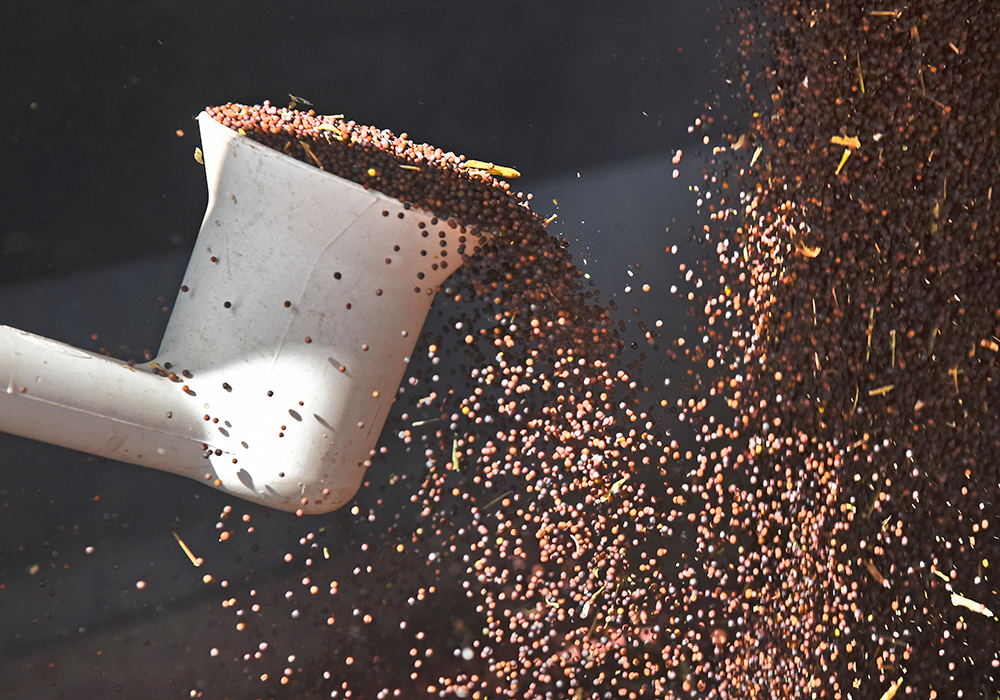Accountants are providing farmers with advice detrimental to commodity groups, says a former senior Saskatchewan bureaucrat.
Alanna Koch, former deputy minister to the premier, said they are telling farmers to request refunds on their levy contributions.
“I don’t know what we do about that, but accountants have now decided this is a pretty active form of advice to farmers, which I find alarming,” she told delegates attending the annual general meeting of the Saskatchewan Canola Development Commission.
“When our accountant tried it on Gerry and I, it didn’t go so well for him.”
Read Also

Agri-business and farms front and centre for Alberta’s Open Farm Days
Open Farm Days continues to enjoy success in its 14th year running, as Alberta farms and agri-businesses were showcased to increase awareness on how food gets to the dinner plate.
Koch’s husband, Gerry Hertz, is a former director of SaskCanola, the Canadian Canola Growers Association and the Canola Council of Canada.
Hertz asked SaskCanola what is happening with levy refunds.
SaskCanola executive director Tracy Broughton said the refund rate in 2022 was 8.8 percent, down from 9.9 percent the previous year but still well above the traditional rate of seven percent.
In 2022, it amounted to a total refund of $425,026. The previous year, $837,781 was returned to farmers.
She believes the increase is related to public relations issues with projects the council was involved with.
“We take that feedback from growers very seriously and (will) consider involvement in various initiatives going forward,” said Broughton.
Former SaskCanola director Zenneth Faye thinks there should be some outreach to accountant associations to get on top of the issue Koch raised.
“We use them to save tax, but this is not a tax,” he said. “This is to better the industry and that’s what they need to be educated about.”
Outgoing director Bernie McClean had similar thoughts.
“Why wouldn’t we reach out to some of the firms out there, small, large and in-between?”
McClean has compared what is happening at SaskCanola with other commodity groups and feels refund rates on check-off levies are on the rise everywhere.
“If all of the sudden there was a drastic change from one to the other, that would be really concerning for me,” he said.
Faye also asked for an update on the 2018 exit of Richardson International from the Canola Council of Canada.
“It’s no different than the growers asking for their refund,” he said.
“This is like the industry asking for their refund.”
Richardson was spending more than $1 million per year funding the canola council, the Flax Council of Canada and Soy Canada before it pulled funding for all three organizations.
Canola council president Jim Everson said he is in regular contact with Richardson’s senior executives and hopes the company will consider restoring its membership in the organization.
He said Richardson has directly benefited from the council’s efforts to restore full market access to China.
“I would hope that that is appreciated and the company would return to the fold,” said Everson.
Faye asked why Richardson pulled the plug in the first place.
Everson said it did not feel it was getting enough value for what it was contributing to the association.
The council adopted some reforms following the exit of Richardson to better align itself with its strategic plan. But those reforms failed to entice the company to renew its membership.
He noted that Richardson supports other value chain organizations such as CropLife Canada and Cereals Canada.
McClean thinks farmers can play a vital role in helping nudge the company in that direction. “It’s probably on us as growers to have those conversations with our local elevators.”
If those conversations go nowhere, he encouraged growers to pick up the phone and call Richardson’s head office in Winnipeg.
















